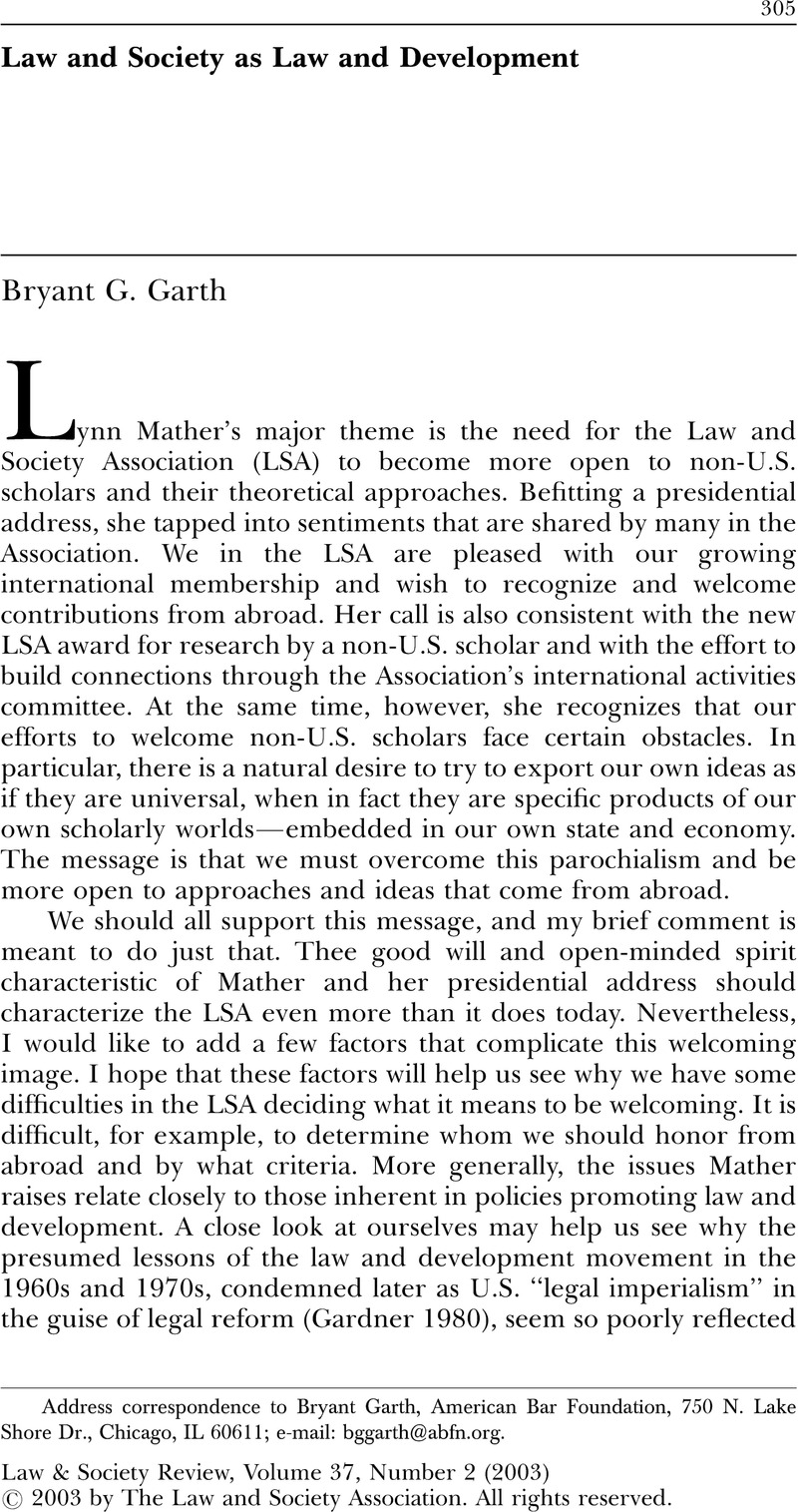Crossref Citations
This article has been cited by the following publications. This list is generated based on data provided by Crossref.
Abel, Richard L.
2010.
Law and Society: Project and Practice.
Annual Review of Law and Social Science,
Vol. 6,
Issue. 1,
p.
1.
Chua, Lynette J.
2014.
Charting Socio-Legal Scholarship on Southeast Asia: Key Themes and Future Directions.
Asian Journal of Comparative Law,
Vol. 9,
Issue. ,
p.
5.
Liu, Sida
2015.
Law's Social Forms: A Powerless Approach to the Sociology of Law.
Law & Social Inquiry,
Vol. 40,
Issue. 01,
p.
1.
LIU, Sida
TRUBEK, David M.
and
WILKINS, David B.
2016.
Mapping the Ecology of China’s Corporate Legal Sector: Globalization and Its Impact on Lawyers and Society.
Asian Journal of Law and Society,
Vol. 3,
Issue. 2,
p.
273.
Gebeye, Berihun A.
2017.
Decoding legal pluralism in Africa.
The Journal of Legal Pluralism and Unofficial Law,
Vol. 49,
Issue. 2,
p.
228.
Liu, Sida
2017.
Overlapping Ecologies.
Sociology of Development,
Vol. 3,
Issue. 3,
p.
212.
Şerban, Mihaela
2018.
Stemming the tide of illiberalism? Legal mobilization and adversarial legalism in Central and Eastern Europe.
Communist and Post-Communist Studies,
Vol. 51,
Issue. 3,
p.
177.
Cohen, Antonin
and
Levi, Ron
2024.
Academic Fields, Funding, and Turbulent Times.
Revue d'histoire des sciences humaines,
Vol. 45,
Issue. ,
p.
7.
Şerban, Mihaela
2024.
Post-Communist Progress and Stagnation at 35.
p.
83.



